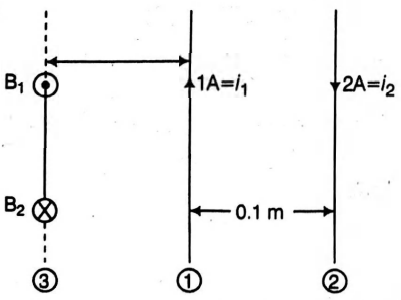Q. Two long parallel wires separated by $0.1\, m$ carry currents of $1\, A$ and $2\, A$ respectively in opposite directions. A third current-carrying wire parallel to both of them is placed in the same plane such that it feels no net magnetic force. It is placed at a distance of
Solution:
